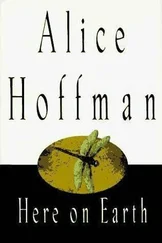Alice Hoffman - The Dovekeepers
Здесь есть возможность читать онлайн «Alice Hoffman - The Dovekeepers» весь текст электронной книги совершенно бесплатно (целиком полную версию без сокращений). В некоторых случаях можно слушать аудио, скачать через торрент в формате fb2 и присутствует краткое содержание. Год выпуска: 2011, ISBN: 2011, Жанр: Историческая проза, на английском языке. Описание произведения, (предисловие) а так же отзывы посетителей доступны на портале библиотеки ЛибКат.
- Название:The Dovekeepers
- Автор:
- Жанр:
- Год:2011
- ISBN:978-1-4516-1749-8
- Рейтинг книги:2.5 / 5. Голосов: 2
-
Избранное:Добавить в избранное
- Отзывы:
-
Ваша оценка:
- 60
- 1
- 2
- 3
- 4
- 5
The Dovekeepers: краткое содержание, описание и аннотация
Предлагаем к чтению аннотацию, описание, краткое содержание или предисловие (зависит от того, что написал сам автор книги «The Dovekeepers»). Если вы не нашли необходимую информацию о книге — напишите в комментариях, мы постараемся отыскать её.
The Dovekeepers — читать онлайн бесплатно полную книгу (весь текст) целиком
Ниже представлен текст книги, разбитый по страницам. Система сохранения места последней прочитанной страницы, позволяет с удобством читать онлайн бесплатно книгу «The Dovekeepers», без необходимости каждый раз заново искать на чём Вы остановились. Поставьте закладку, и сможете в любой момент перейти на страницу, на которой закончили чтение.
Интервал:
Закладка:
We saw the crumbling ruins of their aqueduct, and the dam under a waterfall, which we drank from deeply, though the pool was cluttered with the remnants from the settlement the Romans had destroyed: oil lamps and broken glass vessels, clay inkpots, piles of ostraca —broken pottery shards used for writing upon. There were still tall oaks and laurel trees to offer dappled shade, but anything made by human hands had been crushed. Fallen wooden beams hewn from palm trees and the leaves used for roofs were in brown, crinkled heaps. I wandered through the scriptorium, a library whose shelves and columns littered the ground. Bits of torn scrolls on goatskin or papyrus lay in the dirt, rotting and falling into shreds. I went along the cobblestones to see the ritual baths lined with wide plaster steps. There were snakes in these baths now, nesting beside pools of fetid water.
At last I came to piles of bones, the remains of the faithful. Though I was unworthy, I tore my ragged clothes in the act of keriah, as a sign of respect and mourning, and murmured a prayer for the dead. May His great name be honored. Blessed be He, forever and ever.
I found my way back to the fire my father had lit. We spent the night at this oasis, knowing the Romans would avoid this place and the ghosts of those they’d murdered, but starving jackals would be called to us by the fear in our scent. Surely they had been here before, for the bones of the dead were scattered so widely we could not collect them and store them in a stone container as was their due. We looked at each other, my father and I, and perhaps we saw each other in a different light as the stars hung overhead and the bones glimmered before us. My father did not berate me on this night. Instead, he told me I should be the first to sleep, having decided he would stay awake to watch for any beasts who might come to surround us. It was the first kindness he had ever offered me.
WE WENT FORWARD early the next day. Perhaps an angel led us on our journey. We found our way south, the direction of the springs. It was here the Essenes from Sechacha had come to haul water back to their settlement. We turned onto a path edged by brambles. The goat, now famished, chewed leaves that were prickly and brown. But as we ventured farther, there were green shoots among the rocks. The breeze rose up, carrying the fragrance of balsam and the soft, nearly undetectable scent of water. All at once I recognized the sound of bees. It had been so long since I had heard their honeyed song I nearly swooned. We had come to an oasis where a spring arose from the ground and huge date palms towered. The air was a cool balm, so sweet it seemed we had stepped inside a cloud filled with perfume, rich with the scents of myrrh and coriander. We had found a group of the Yahad people who had survived, settling here to wait for the End of Days.
In the clearing their grapevines and gardens were brilliant against the white-hot sky. The beauty of the world burst forth in every growing thing. There was a field of wheat and flax, yellow and gold, ablaze with sun. We heard bells that were hanging from the trees on twists of black rope, ringing as they moved with the breeze. There were dozens of mulberry and olive trees circling a stone well, alongside a grove of pistachios that turned the haze green. A pen of forty goats was set up in the shade, another forty sheep dozed in the sun.
Many among the Essenes had been priests, some lived without women in the limestone cliffs, their caves marked by mezuzoth, containers holding scrolls in which prayers to God were enclosed. These men were too pure for the entanglements of life in this world, but there were also men who had arrived with wives and daughters, their women dressed in white linen, heads covered at all times. They resided in large tents with their families, some of them having fled from Sechacha, others having arrived only recently from Jerusalem after the fall of the Temple.
People peered at us as we walked through the settlement. There were stone common houses, and ritual baths, and libraries where scholars set to completing documents, dividing themselves into groups of three, so that the men could work on scrolls written upon animal skins or papyrus throughout the day and the night. Perhaps my father and I looked like demons, made of sand rather than flesh. Our eyes peered out of our filthy faces. My hair was like blood twisted down my back, so long it reached past my waist. Some of the women blinked when they saw me, but no one jeered. The people of the Yahad sect practiced kindness in what they believed to be our last days in this world. What belonged to one man also belonged to his neighbor.
The women came to greet us. The fabric they wove on their looms was so light their garments flowed around them. I yearned for sheets of linen to wrap around myself so no one would see me. Perhaps then I would be able to withstand the intensity of God’s bright light when He could not forgive me for all I’d done.
Although these holy people had lost many of their own at the hands of the Romans, for they revealed that the settlement of Sechacha had been conquered and ruined even before the Temple fell, the Essenes weren’t willing to carry daggers, which they considered an affront to the greatness of God. Quickly my father made the decision not to tell them he was one of the Sicarii. These people considered the Sicarii to be on the side of darkness, snakes who defied Adonai . We merely announced that we were among those who had been expelled from Jerusalem, a poor father and daughter who had become wanderers. When we spoke of the mother and children traveling with us who had been stricken with fever, the Essene women had compassion and quickly resolved to help us. One among them, who identified herself as Tamar bat Aaron, escorted my father to a learned man, a priest whose followers called him Abba — father — a teacher of righteousness whose people did his bidding out of joy rather than duty.
Abba was so old he had to be brought everywhere in his chair, carried by four strong men; so pure Tamar whispered we must sit sixty arm spans away, the distance kept by all of the women, their heads covered, their eyes downcast yet shining, for although women were not included in the strict Essene ways, they were radiant when they heard the great man speak. Another priest of Abba’s magnitude would have turned us away, too enmeshed in prayer to be bothered with our pleas. Or perhaps such a powerful man might have agreed to hear us if we had brought silver in exchange for his favor. But Abba was convinced that every man was his brother. He was a follower of a teacher from Galilee who taught that peace was the only hope for mankind. Without it, we were like the jackals in the desert, nothing more.
Beside me, Tamar whispered that Abba had had ten wives and outlived them all; he now spent his days giving glory to God and teaching the ways of peace. The men here prayed three times a day; in the morning as they faced in the direction of Jerusalem, then again at sunset, and once more after nightfall. They carried what was holy within them, for every man was a temple, and every prayer spoken could be heard by our Father above us.
When told of our plight, Abba presented my father with a fever charm, a prayer slipped inside a metal tube that was to be attached to the arms of the afflicted. He offered a length of blessed rope, to tie into knots in the children’s tunics and bind them to good health, as well as a precious bulb of deep purple garlic to keep away demons. We were to recite the name Adonai a hundred times over a cup of water and garlic that had been boiled three times atop a hot fire, then instruct those who had sickened to drink while they prayed for grace from God.
WE WERE GIVEN pressed dates and barley cakes and allowed to spend the night. A light rain was falling, and the earth quickly flooded with puddles. My father was led to a common house to stay among the men. I tied my goat to a tamarisk tree and went with the unmarried girls, who looked at me with puzzled expressions. I must have appeared as a wild beast to them. When I uncovered my hair before them, they were shocked by the knots and set to work on them with wooden combs. They brought me to bathe in their ritual pool, where the water turned black all around me. Even I could see it was a bad omen, but the Essene girls laughed and said holy water took away all sin. Their people believed immersing themselves brought them closer to God, and they bathed several times a day. There was a double staircase into the bath; one flight of the limestone steps to enter, the other for the pure who had been cleansed so they might walk out of the water without touching those who were still unclean. Indeed, when I stepped out of the water, I felt truly cleansed for the first time since leaving Jerusalem. My hair was so red that the bees came to me, circling round. The Essene women laughed, suggesting that my hair must appear to be a field of roses. I had to run from the swarm and shout out that I was a woman, not a flower.
Читать дальшеИнтервал:
Закладка:
Похожие книги на «The Dovekeepers»
Представляем Вашему вниманию похожие книги на «The Dovekeepers» списком для выбора. Мы отобрали схожую по названию и смыслу литературу в надежде предоставить читателям больше вариантов отыскать новые, интересные, ещё непрочитанные произведения.
Обсуждение, отзывы о книге «The Dovekeepers» и просто собственные мнения читателей. Оставьте ваши комментарии, напишите, что Вы думаете о произведении, его смысле или главных героях. Укажите что конкретно понравилось, а что нет, и почему Вы так считаете.












